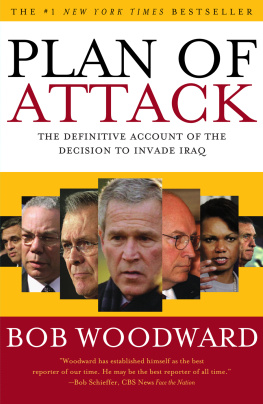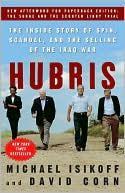State of Denial
Jacket
"INSURGENTS AND TERRORISTS RETAIN THE RESOURCES AND CAPABILITIES TO SUSTAIN AND EVEN INCREASE CURRENT LEVEL OF VIOLENCE THROUGH THE NEXT YEAR." This was the secret Pentagon assessment sent to the White House in May 2006. The forecast of a more violent 2007 in Iraq contradicted the repeated optimistic statements of President Bush, including one, two days earlier, when he said we were at a "turning point" that history would mark as the time "the forces of terror began their long retreat."
State of Denial examines how the Bush administration avoided telling the truth about Iraq to the public, to Congress, and often to themselves. Two days after the May report, the Pentagon told Congress, in a report required by law, that the "appeal and motivation for continued violent action will begin to wane in early 2007."
In this detailed inside story of a war-torn White House, Bob Woodward reveals how White House Chief of Staff Andrew Card, with the indirect support of other high officials, tried for 18 months to get Defense Secretary Donald Rumsfeld replaced. The president and Vice President Cheney refused. At the beginning of Bush's second term, Stephen Hadley, who replaced Condoleezza Rice as national security adviser, gave the administration a "D minus" on implementing its policies. A SECRET report to the new Secretary of State Rice from her counselor stated that, nearly two years after the invasion, Iraq was a "failed state."
State of Denial reveals that at the urging of Vice President Cheney and Rumsfeld, the most frequent outside visitor and Iraq adviser to President Bush is former Secretary of State Henry Kissinger, who, haunted still by the loss in Vietnam, emerges as a hidden and potent voice.
Woodward reveals that the secretary of defense himself believes that the system of coordination among departments and agencies is broken, and in a SECRET May 1, 2006, memo, Rumsfeld stated, "the current system of government makes competence next to impossible."
State of Denial answers the core questions: What happened after the invasion of Iraq? Why? How does Bush make decisions and manage a war that he chose to define his presidency? And is there an achievable plan for victory?
Bob Woodward's third book on President Bush is a sweeping narrativefrom the first days George W. Bush thought seriously about running for president through the recruitment of his national security team, the war in Afghanistan, the invasion and occupation of Iraq, and the struggle for political survival in the second term.
After more than three decades of reporting on national security decision makingincluding his two #1 national bestsellers on the wars in Afghanistan and Iraq, Bush at War (2002) and Plan of Attack (2004) Woodward provides the fullest account, and explanation, of the road Bush, Cheney, Rumsfeld, Rice and the White House staff have walked.
BOB WOODWARD, an assistant managing editor of The Washington Post, has been a newspaper reporter and editor for 35 years. He has authored or coauthored ten #1 national nonfiction bestsellers. He has two daughters, Tali and Diana, and lives in Washington, D.C., with his wife, Elsa Walsh, a writer for The New Yorker.
Register online at wvvw.simonsays.com for more information on this and other great books.
This title is also available from Simon & Schuster Audio and as an eBook.
State of Denial
Bob Woodward
Simon & Schuster
New York London - Toronto - Sydney
SIMON & SCHUSTER Rockefeller Center 1230 Avenue of the Americas New York, NY 10020
Copyright 2006 by Bob Woodward
All rights reserved, including the right of reproduction in whole or in part in any form.
Simon & Schuster and colophon are registered trademarks of Simon & Schuster, Inc.
For information about special discounts for bulk purchases, please contact Simon & Schuster Special Sales at
1-800-456-6798 or .
Designed by Jaime Putorti
Manufactured in the United States of America
10 987654321
Library of Congress Cataloging-in-Publication Data is available.
ISBN-13: 978-0-7432-7223-0
ISBN-10: 0-7432-7223-4
To Mary Walsh
AUTHOR'S NOTE
Christine Parthemore, a 2003 Phi Beta Kappa political science graduate of The Ohio State University, is a kind of Wonder Woman of the Information Age, capable of finding any information or any person. She has never let me down. Meticulous and diligent in every task from transcribing hundreds of hours of interview tapes to editing the manuscript, she is learned, frank, and smart. A natural editor, she knows how to get to the heart of matters. As she demonstrated every day, Christine has the energy of half a dozen and an endless capacity for work.
PROLOGUE
IN late December 2000, less than a month before his inauguration, President-elect George W. Bush was still debating who should be his secretary of defense. Former Senator Dan Coats, an Indiana Republican who had served on the Armed Services Committee, had been at the top of Bush's list and had the backing of his conservative base. But Coats had not been impressive in his interview with Bush and Vice President elect Dick Cheney, who was heading the transition team for the new government. Coats knew the top generals mostly from a distance and was lukewarm on the national missile defense system Bush had promised in the campaign. He had never run a large organization and he acknowledged he would need a strong, experienced number two at the Pentagon.
It wouldn't work. Bush needed someone who could not only battle things out with the generals but who also had as much gravitas as the rest of his new national security team. Cheney had been secretary of defense under Bush's father; Colin Powell, Bush's pick for secretary of state, had been chairman of the Joint Chiefs of Staff and Reagan's national security adviser. He needed a secretary of defense with more stature, grit and experience.
What about Donald Rumsfeld? Cheney suggested. Rumsfeld, 68, Cheney's old boss and mentor, had the dream resume. He had been secretary of defense once before, under President Ford from 1975 to 1977. He had been a Navy pilot in the 1950s, elected to four terms in Congress, served as Ford's White House chief of staff, and been the CEO of two Fortune 500 companies. They'd been talking about making Rumsfeld CIA director, but maybe that wasn't right. Maybe they needed him back at Defense.
Three days before Christmas, Bush, Cheney and Rumsfeld had a long meeting and lunch. Wiry, cocky, confident with a boyish intensity, Rumsfeld seemed only half his age. He blew into the meeting like a tornado, full of excitement and vision. He knew the Pentagon; he had recently headed commissions on the use of space and the ballistic missile threat. He seemed to know everything.
Bush was surprised to be so impressed. Afterward, he spoke with his incoming White House chief of staff, Andrew H. Card Jr.
Bush had selected Card, 53, because his father said there was no more loyal person. Back in 1988, Card had been instrumental in his father's win in the critical New Hampshire primary. Later, Card had been Bush senior's deputy White House chief of staff and transportation secretary.
After the 2000 election, Card thought he would be asked to run the transition team. "No, I'm not talking about that job," Bush told him. "I'm talking about the big one." They would have to have a completely candid, unique relationship, Card insisted, setting out his conditions for becoming chief of staff. Access to all people, meetings and information. "I also can't be a friend," Card said.
"Of course," Bush said.
In November, weeks before the Supreme Court settled the election in his favor, Bush announced Card's appointment, intentionally sending the strongest signal: Besides the vice president, Andy Card would be first among equals in the Bush White House, on all matters, at all times.

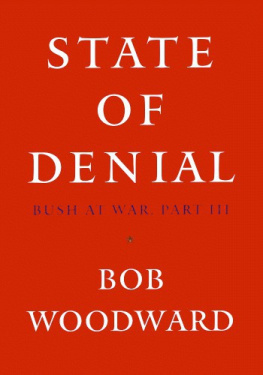
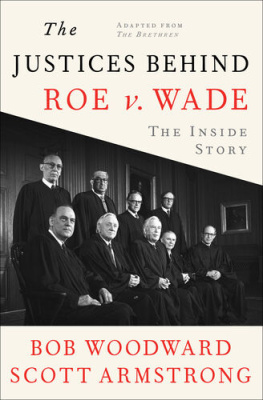
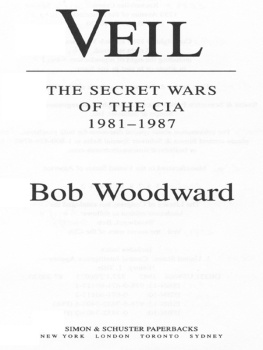
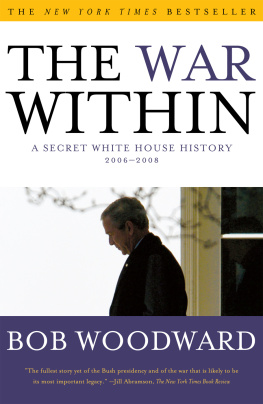
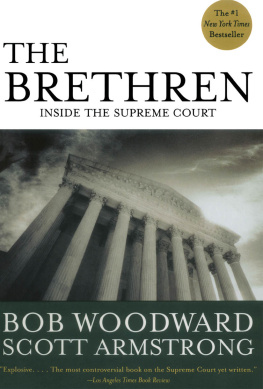
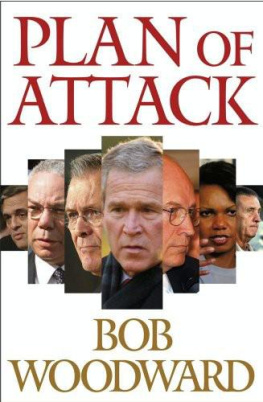



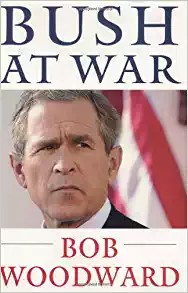
![Woodward - State of Denial: Bush at War: [Part III]](/uploads/posts/book/211038/thumbs/woodward-state-of-denial-bush-at-war-part-iii.jpg)
